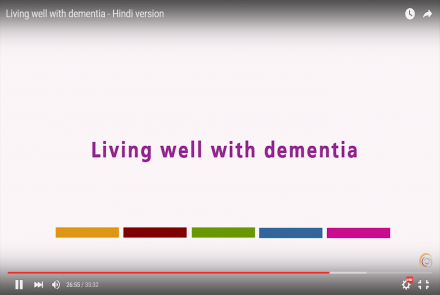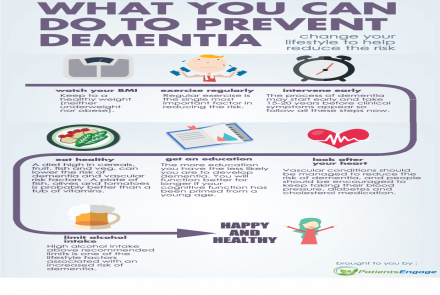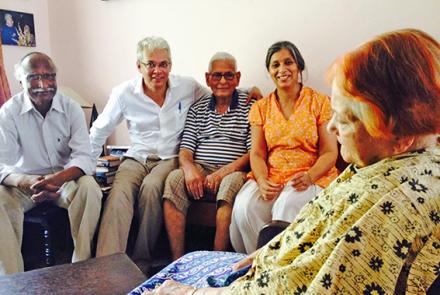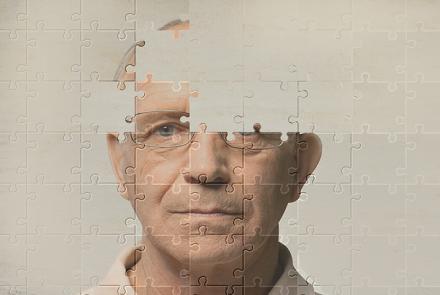
Saadiya Hurzuk is a Centre Manager and Clinical Psychologist at ARDSI Hyderabad. She shares her views on why it is important to have an early diagnosis in dementia treatment.
Over a period of time dementia has become one of the frightening epidemics in the global health scenario. With social stigma attached to the disorder, it is kept hidden. People find it difficult to accept and understand the problems they are facing with memory and cognition that is affecting them daily. Most of the time they are convinced that there is something severely wrong with them to the point that they start believing they are going crazy or stupid. In the Indian context, the family/ relatives approach professionals only when they are not able to handle the person with dementia at home.
Data from Alzheimer’s disease international report 2011 states that out of 36 million people with dementia, 28 million people are yet to receive a diagnosis or any other kind of professional support. In India, 4.1 million people have dementia. This implies that one person in every 16 households with elderly has dementia. The most shocking fact is that out of this vast dementia population most of them do not get any diagnosis. The numbers suggests that only 1 in 10 people with dementia ever get a diagnosis, treatment or dementia support. So the real challenge in the dementia community is the lack of early diagnosis.
Why is there a delay in dementia diagnosis?
- Lack of understanding of dementia in the society. Due to poor understanding, it is still considered as natural aging or the elderly trying to cause trouble intentionally.
- Lack of understating of symptoms like apathy, delusions, memory loss, confusion, poor comprehension, misplacing things, etc.
- Stigma attached to dementia / mental health.
- Lack of awareness in the medical society where the doctors just pronounce dementia stating that there is no medicine that can cure and the family will have to bear it. The lack of awareness of dementia support system.
Why is early diagnosis important?
The foremost importance of diagnosis is that it gives a better insight to the person with dementia and his/her family members. It helps the person understand that they are going through a disorder which is making them act in a certain way which usually makes them more confused and irritated. The lack of understanding of the symptoms makes the people lose their self esteem and can give rise to other psychological symptoms. The diagnosis, after the initial phase of depression or shock, helps the person with dementia understand that it is the disorder that is affecting their memory and cognitive skills.
The family and relatives of the person with dementia also understand that the unusual behaviour of the person is due to a disorder and the person is not trying to trouble them. It helps in retaining the relationships and people can make right decisions at the right time with regards to further treatment plans and other necessary things like finance, job related decisions, or daily chores like driving, banking, shopping, etc.. The understanding and awareness of dementia helps in reducing the caregivers’ stress and burden as the family caregivers are well equipped for the challenging situations.
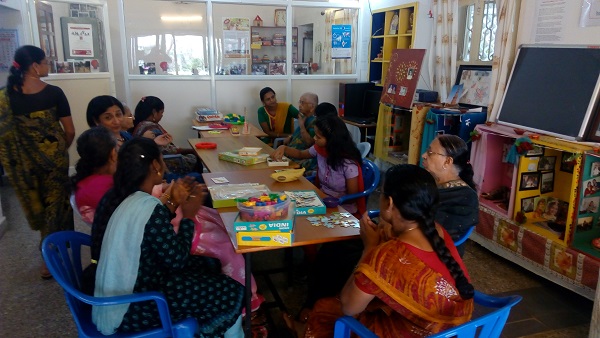
Studies show that interventions like music therapy, cognitive stimulation, social integrations, reminiscence therapy, art therapy, etc. are very effective in the early stages of dementia. As people with dementia get accustomed to these activities in the early stages, it becomes comparatively easier to follow the same routine in the moderate to severe stages of dementia when there is very poor comprehension and cognitive skills left.
A few points that highlight the need for an early diagnosis of dementia are:
- It makes a lot of difference how the diagnosis is disclosed to the person with dementia and the family. The impact of dementia diagnosis relies a lot on how it is put across and it is also matters at what severity it is disclosed to the dyad. Often delayed diagnosis results in the family feeling cheated as the diagnosis would have made their lives and those of their loved ones less difficult . On visiting the ARDSI dementia centre Mr Shah’s* family was surprised to see a dementia centre and daycare. As they were given further information on the progressive nature of the disease and the challenging symptoms caused by dementia their first reaction was despair and disappointment. Mrs Shah cried at the fact that they were responding in the opposite manner as they should have for the challenging behaviours. She said she felt cheated as in the last 5 years of dementia treatment no healthcare professional ever mentioned these available services. With astonishment she added had they known about this earlier it would have made their dementia journey less miserable.
- After the initial shock, grief and anger at the time of diagnosis, families are well prepared and supported which helps them cope and feel empowered. This eventually leads to a better quality of life for both the parties. Studies show that most people wish that they were told of their diagnosis earlier.
- Early diagnosis helps in planning the future as the person with dementia still has good insight and understanding which saves the family the challenging decisions in advanced stages of dementia. It helps the person make his/her own choice about dementia care management plans - who will take care of the person in advanced stage, to institutionalise him/her or not, regarding financial support, etc.. Making these decisions in the early stages can help the families from breaking apart. It is the best time to get consent from the person with dementia regarding their finances, properties or even for research involvements.
Ms Geeta is going through a very tough time as she has to decide whether to institutionalise her mother or not. Her mother is suffering from FTD (Fronto Temporal Dementia) since last 4 years. She was misdiagnosed and currently she has severe behaviour and psychological problems. Ms Geeta’s elderly parents live alone and her father who is in his 80’s is unable to handle the spouse with dementia even with full time support and help at home. It’s a very difficult and emotional situation for Ms Geeta and she is lost at the moment to make a decision. She is afraid that her mother won’t like assisted living and should not be left alone. If this family would have got an early diagnosis and an understanding of the disease and possible treatment plan it would have been easier for them to make the decision. If the person with dementia was involved in planning while she had the cognitive abilities and understating, it would have been easier for the family to make these challenging decisions with regards to the person with dementia.
- Early diagnosis helps in giving primary caregivers time to familiarise themselves with dementia training programmes and dementia support systems, time to make deeper rapport with the person with dementia which is very helpful in the challenging times and severe stages. Also, time is available to get used to newer interventions and environment modification for the person with dementia. It is always better to have early information regarding the medical interventions and non-pharmacological interventions.
- Early interventions are beneficial in improving cognition, and help in sustaining self esteem and treating depression. They delay challenging and psychological behaviours due to dementia, thereby helping to potentially reduce and control the financial burden with regards to dementia care. The sooner the medical and therapeutic interventions are applied; the better it is at delaying challenging behaviours and puts off institutionalisation and other medication cost. It helps in improving the caregiver’s well being and relation with their loved ones as they get involved in the interventions together.
The Murthy’s* are one of the ideal dementia families, as they got an early diagnosis in 2006 and since then have received all the early counsellings, dementia trainings, multiple interventions and choices for medication. Even after 10 years of Alzheimer Disease diagnosis Mrs Murthy is doing quite well comparitively and her spouse is able to handle the progressive stages at home with support. The caregiver's stress scales shows significant less carers burden for Mr Murthy as compared to others who delayed the interventions.
- Some of the dementia symptoms can be reversible like vitamin B12 deficiency, depression, stress, trauma, injury, hormonal imbalances, etc. for which medication is available. Certain reversible causes of dementia or dementia like symptoms can be treated in the early stages and can help in reducing the severity of the symptoms.
In conclusion, a better awareness of the condition in the society, a more structured approach by the healthcare providers, removal of stigma regarding the condition among the people and proper planning can go a long way to help delay the progression or reduce the burden of dementia on the patient and the family.
* Names altered
Saadiya Hurzuk is a Clinical Psychologist with specialisation in Dementia studies from the University of Stirling, UK. She has over 5 years of experience as a dementia professional and is currently working as Centre Manager and Psychologist at ARDSI Hyderabad.





